How Cloudflare is powering the next generation of platforms with Workers
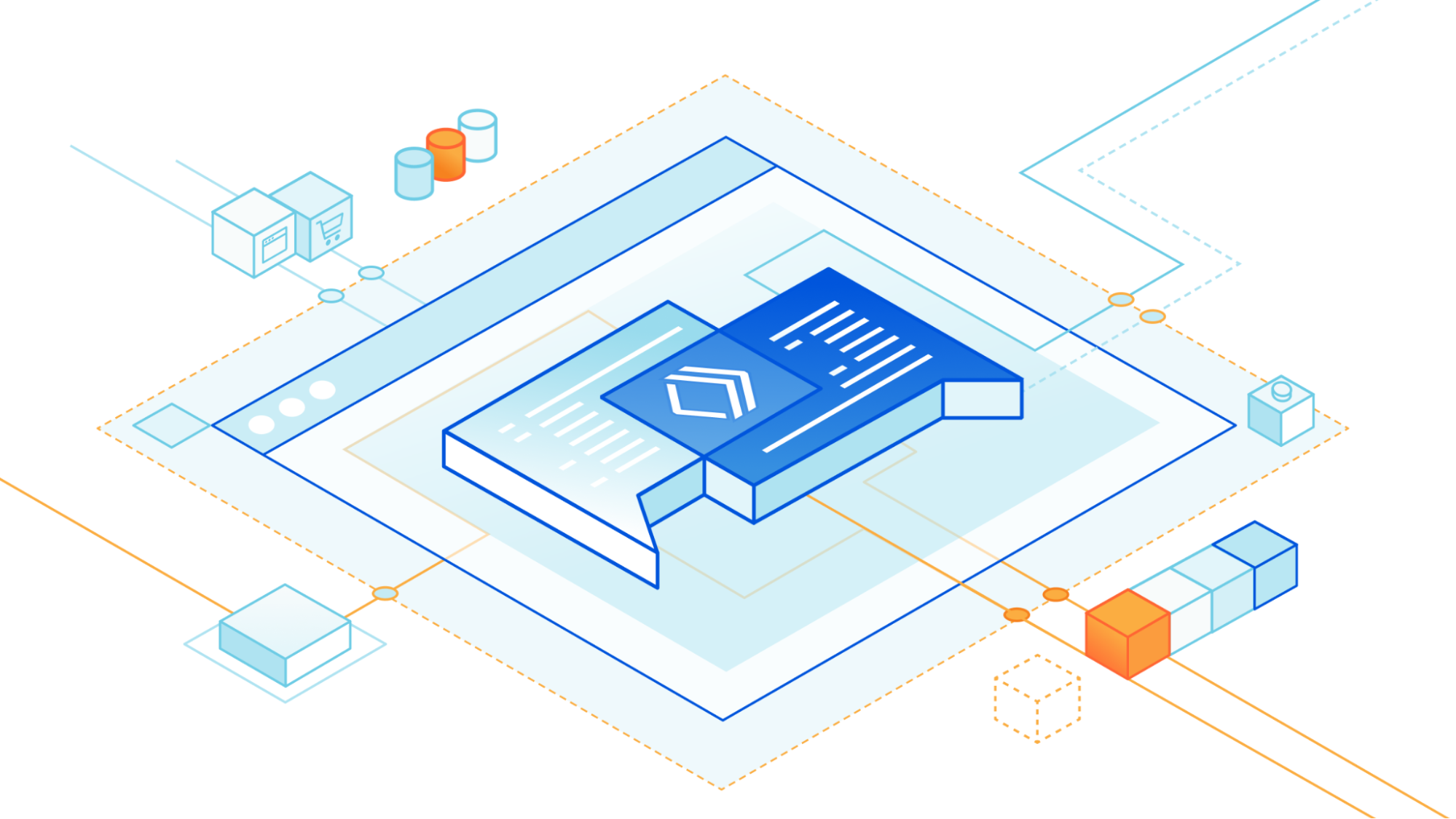

We launched Workers for Platforms, our Workers offering for SaaS businesses, almost exactly one year ago to the date! We’ve seen a wide array of customers using Workers for Platforms – from e-commerce to CMS, low-code/no-code platforms and also a new wave of AI businesses running tailored inference models for their end customers!
Let’s take a look back and recap why we built Workers for Platforms, show you some of the most interesting problems our customers have been solving and share new features that are now available!
What is Workers for Platforms?
SaaS businesses are all too familiar with the never ending need to keep up with their users' feature requests. Thinking back, the introduction of Workers at Cloudflare was to solve this very pain point. Workers gave our customers the power to program our network to meet their specific requirements!
Need to implement complex load balancing across many origins? Write a Worker. Want a custom set of WAF rules for each region your business operates in? Go crazy, write a Worker.
We heard the same themes coming up with our customers – which is why we partnered with early customers to build Workers for Platforms. We worked with the Continue reading
Making Cloudflare the best place for your web applications
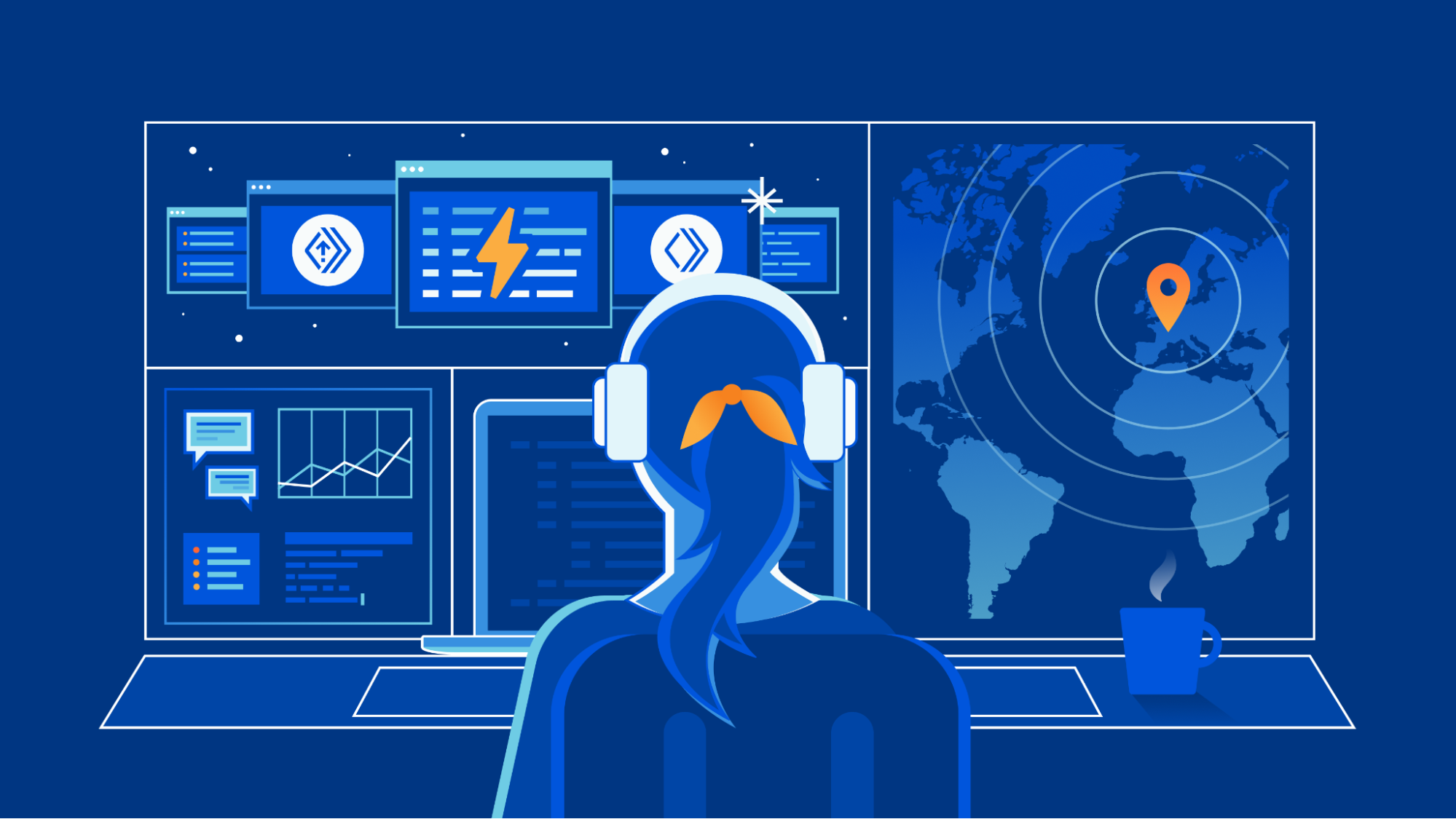
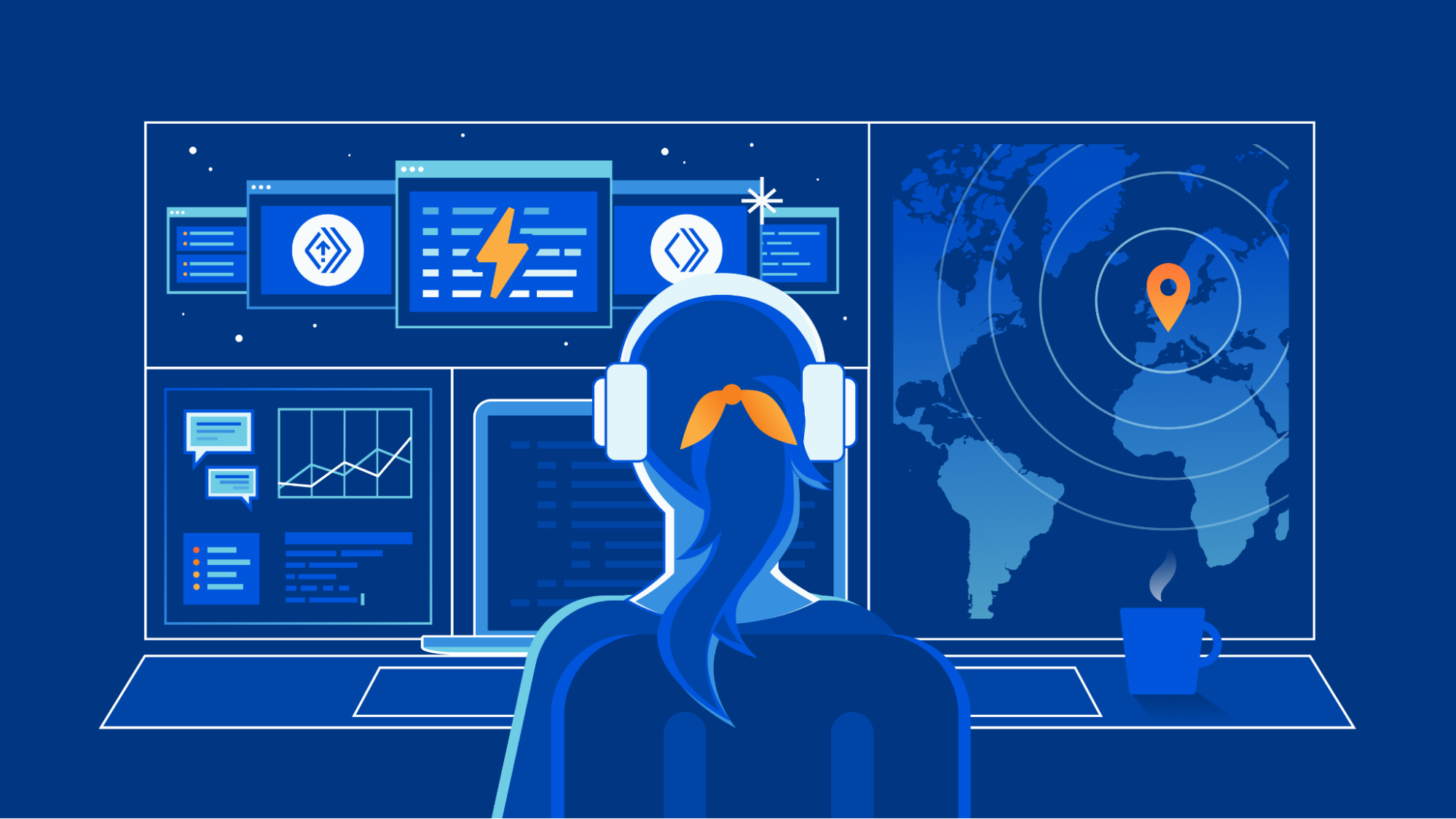
Hey web developers! We are about to shake things up a bit here at Cloudflare and wanted to give you a heads-up, so that you know what we are doing and where we are going. You might know Cloudflare as one of the best places to come to when you need to protect, speed up, or scale your web application, but increasingly Cloudflare is also becoming the best place to deploy and run your application!
Why deploy your application to Cloudflare? Two simple reasons. First, it removes lots of hassle of managing many separate systems and allows you to develop, deploy, monitor, and tune your application all in one place. Second, by deploying to Cloudflare directly, there is so much more we can do to optimize your application and get it to the hands, ears, or eyes of your users more quickly and smoothly.
So what’s changing? Quite a bit, actually. I’m not going to bore you with rehashing all the details as my most-awesome colleagues have written separate blog posts with all the details, but here is a high level rundown.
Cloudflare Workers + Pages = awesome development platform
Cloudflare Pages and Workers are merging into a single unified Continue reading
A whole new Quick Edit in Cloudflare Workers
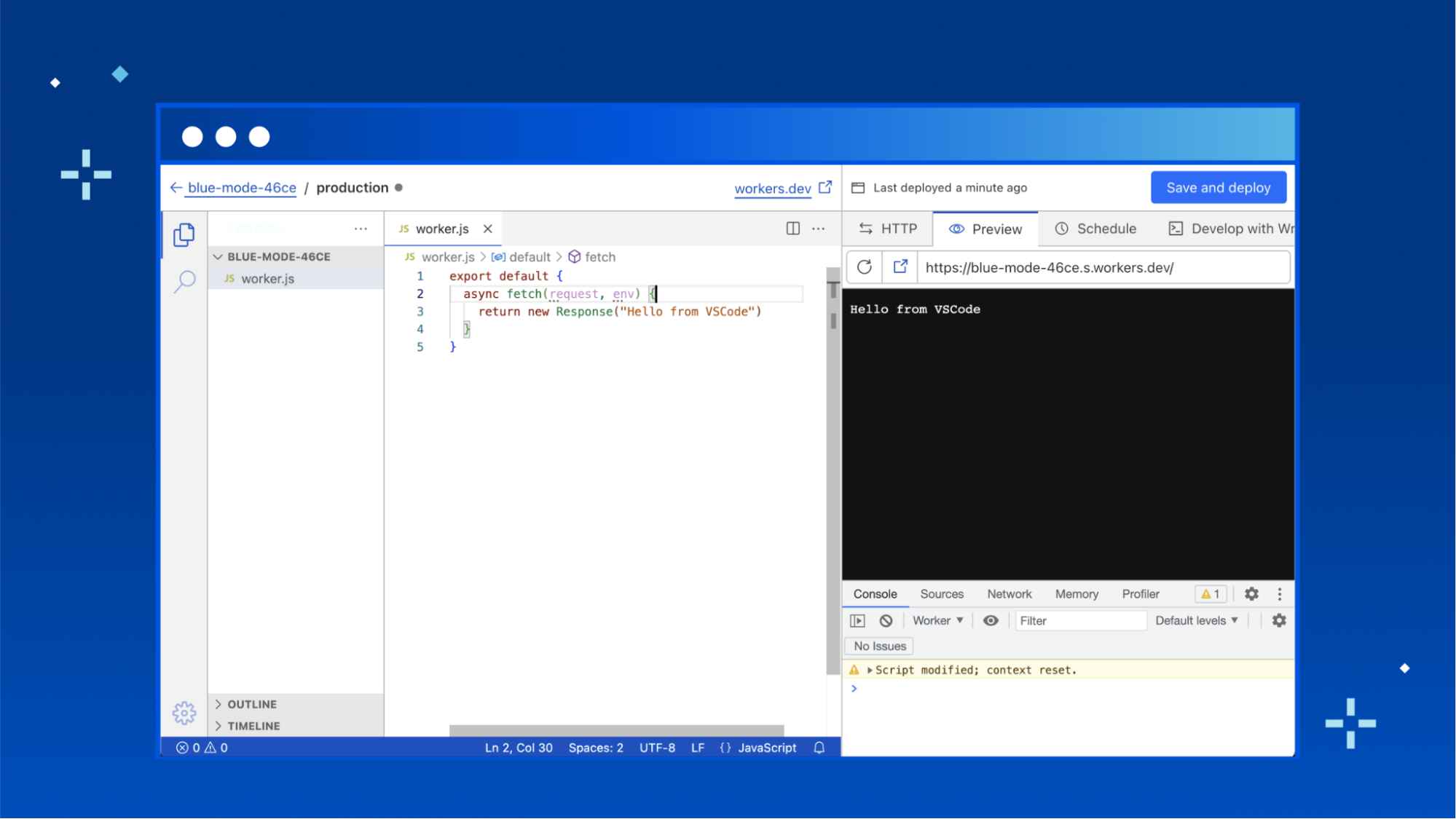
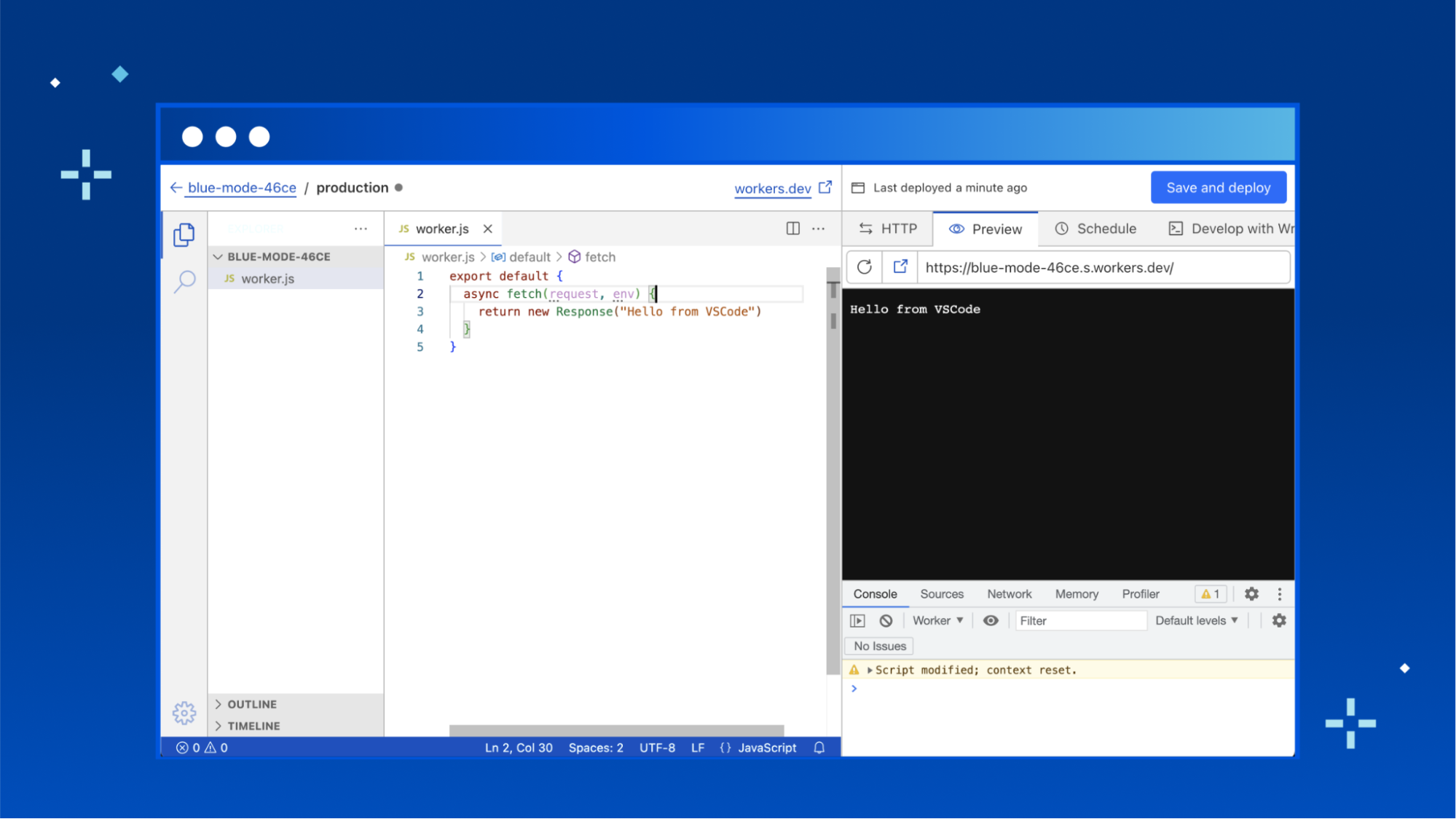
Quick Edit is a development experience for Cloudflare Workers, embedded right within the Cloudflare dashboard. It’s the fastest way to get up and running with a new worker, and lets you quickly preview and deploy changes to your code.
We’ve spent a lot of recent time working on upgrading the local development experience to be as useful as possible, but the Quick Edit experience for editing Workers has stagnated since the release of workers.dev. It’s time to give Quick Edit some love and bring it up to scratch with the expectations of today's developers.
Before diving into what’s changed—a quick overview of the current Quick Edit experience:

We used the robust Monaco editor, which took us pretty far—it’s even what VSCode uses under the hood! However, Monaco is fairly limited in what it can do. Developers are used to the full power of their local development environment, with advanced IntelliSense support and all the power of a full-fledged IDE. Compared to that, a single file text editor is a step-down in expressiveness and functionality.
VSCode for Web
Today, we’re rolling out a new Quick Edit experience for Workers, powered by VSCode for Web. This is a huge Continue reading
Bringing a unified developer experience to Cloudflare Workers and Pages
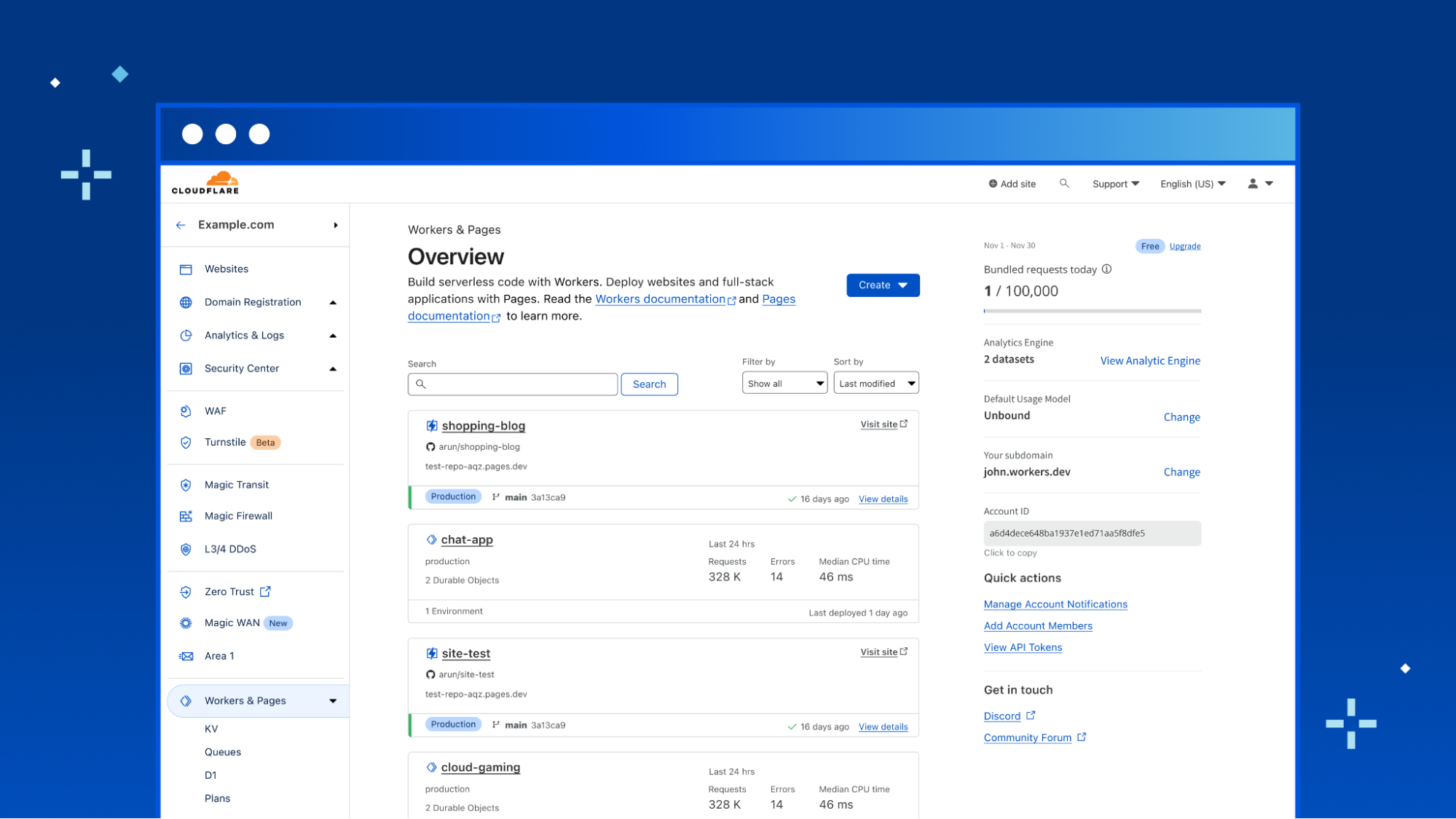
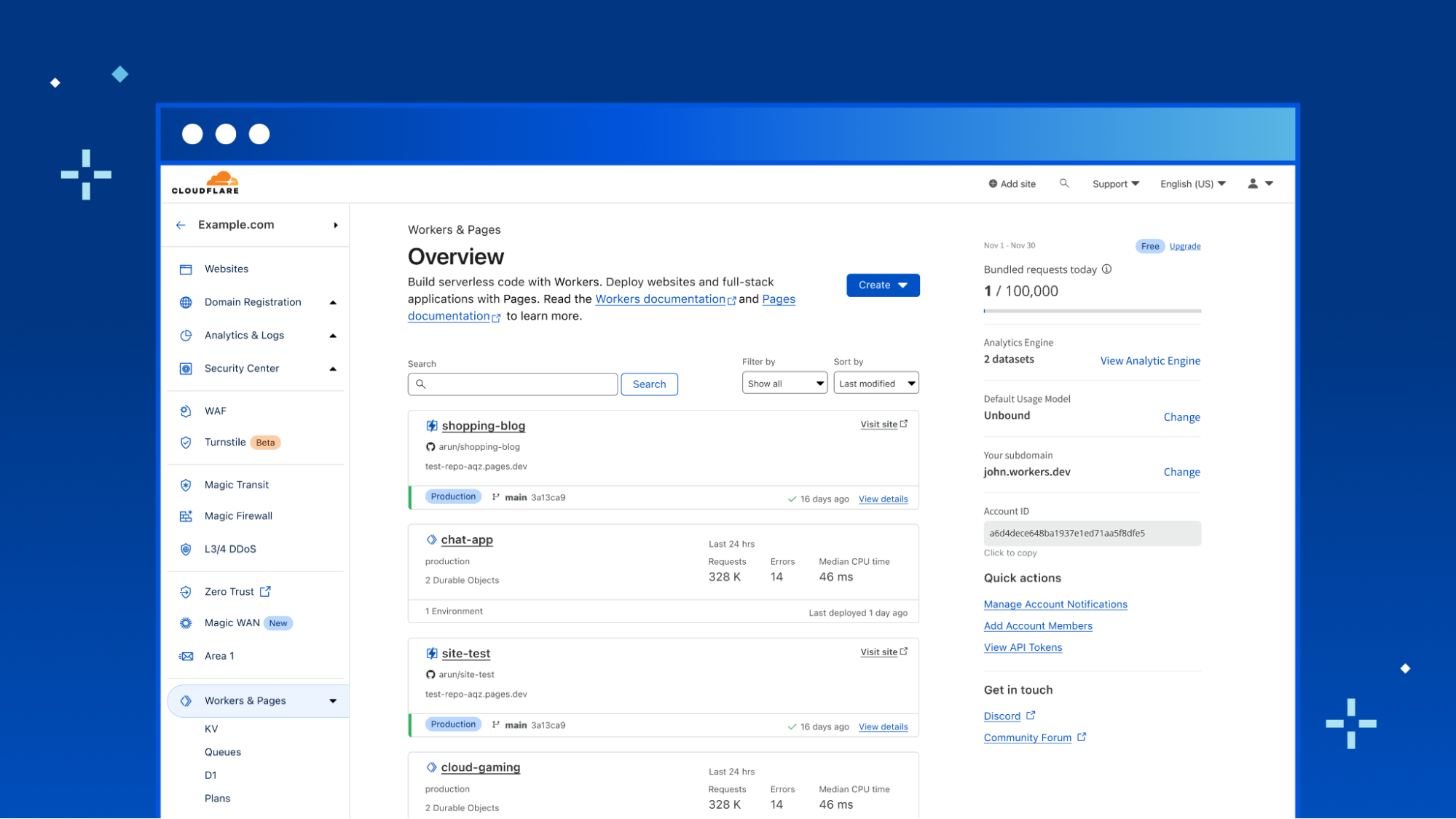
Today, we’re thrilled to announce that Pages and Workers will be joining forces into one singular product experience!
We’ve all been there. In a surge of creativity, you visualize in your head the application you want to build so clearly with the pieces all fitting together – maybe a server side rendered frontend and an SQLite database for your backend. You head to your computer with the wheels spinning. You know you can build it, you just need the right tools. You log in to your Cloudflare dashboard, but then you’re faced with an incredibly difficult decision:
Cloudflare Workers or Pages?
Both seem so similar at a glance but also different in the details, so which one is going to make your idea become a reality? What if you choose the wrong one? What are the tradeoffs between the two? These are questions our users should never have to think about, but the reality is, they often do. Speaking with our wide community of users and customers, we hear it ourselves! Decision paralysis hits hard when choosing between Pages and Workers with both products made to build out serverless applications.
In short, we don’t want this for our users — Continue reading
Modernizing the toolbox for Cloudflare Pages builds
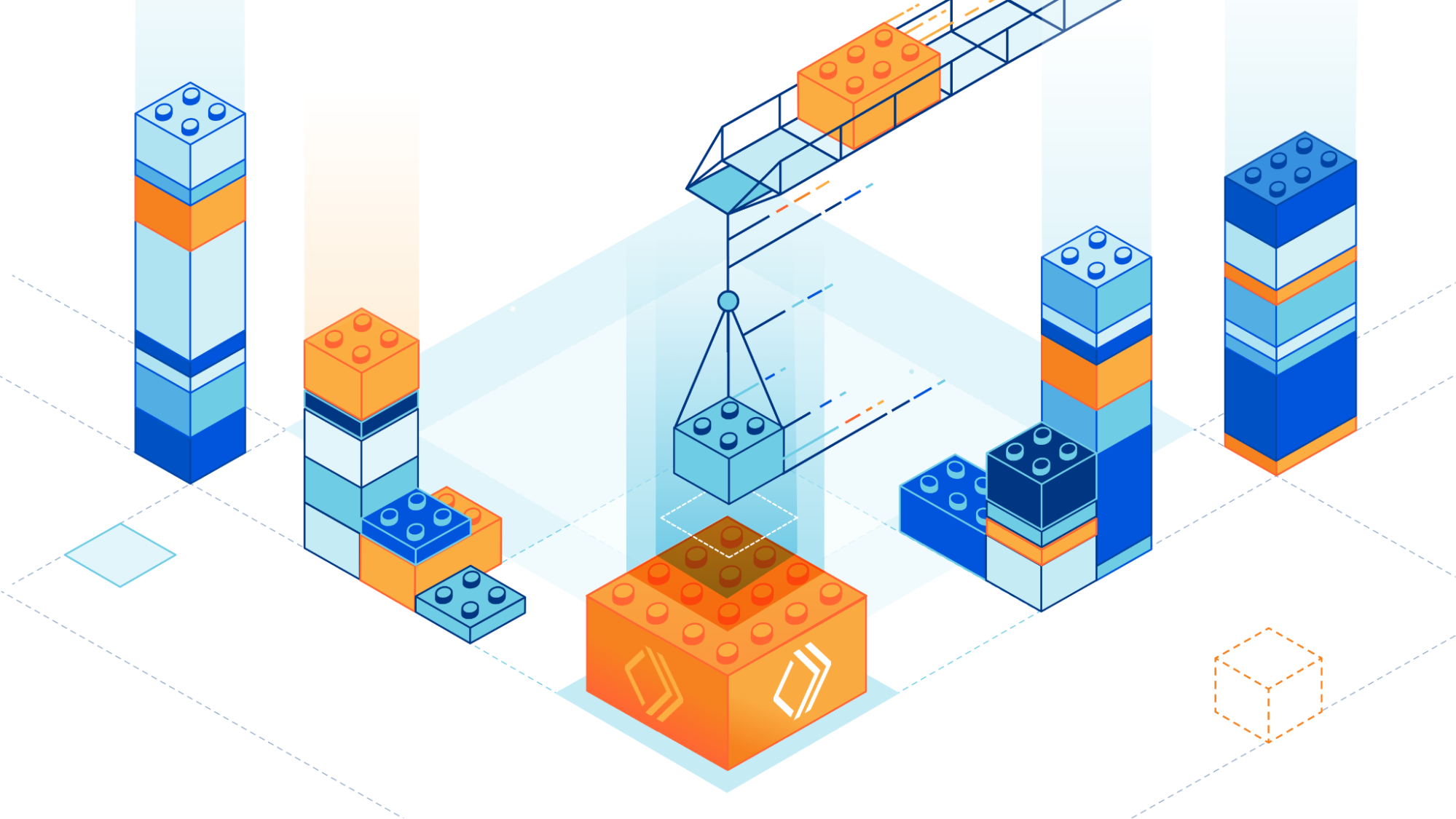
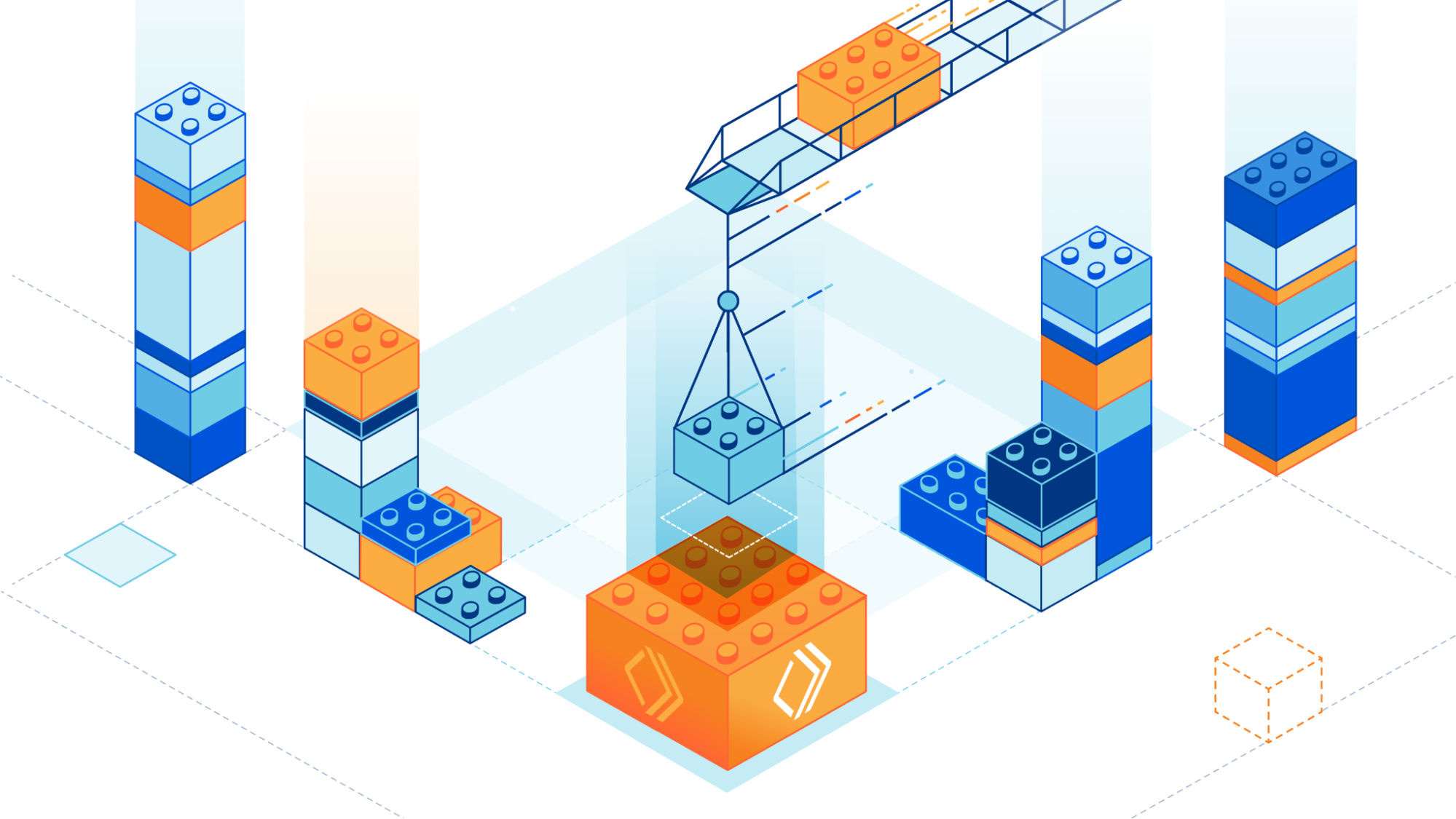
Cloudflare Pages launched over two years ago in December 2020, and since then, we have grown Pages to build millions of deployments for developers. In May 2022, to support developers with more complex requirements, we opened up Pages to empower developers to create deployments using their own build environments — but that wasn't the end of our journey. Ultimately, we want to be able to allow anyone to use our build platform and take advantage of the git integration we offer. You should be able to connect your repository and have it just work on Cloudflare Pages.
Today, we're introducing a new beta version of our build system (a.k.a. "build image") which brings the default set of tools and languages up-to-date, and sets the stage for future improvements to builds on Cloudflare Pages. We now support the latest versions of Node.js, Python, Hugo and many more, putting you on the best path for any new projects that you undertake. Existing projects will continue to use the current build system, but this upgrade will be available to opt-in for everyone.
New defaults, new possibilities
The Cloudflare Pages build system has been updated to not only support new versions Continue reading
Improved local development with wrangler and workerd


For over a year now, we’ve been working to improve the Workers local development experience. Our goal has been to improve parity between users' local and production environments. This is important because it provides developers with a fully-controllable and easy-to-debug local testing environment, which leads to increased developer efficiency and confidence.
To start, we integrated Miniflare, a fully-local simulator for Workers, directly into Wrangler, the Workers CLI. This allowed users to develop locally with Wrangler by running wrangler dev --local. Compared to the wrangler dev default, which relied on remote resources, this represented a significant step forward in local development. As good as it was, it couldn’t leverage the actual Workers runtime, which led to some inconsistencies and behavior mismatches.
Last November, we announced the experimental version of Miniflare v3, powered by the newly open-sourced workerd runtime, the same runtime used by Cloudflare Workers. Since then, we’ve continued to improve upon that experience both in terms of accuracy with the real runtime and in cross-platform compatibility.
As a result of all this work, we are proud to announce the release of Wrangler v3 – the first version of Wrangler with local-by-default development.
A new default for Wrangler
Announcing database integrations: a few clicks to connect to Neon, PlanetScale and Supabase on Workers
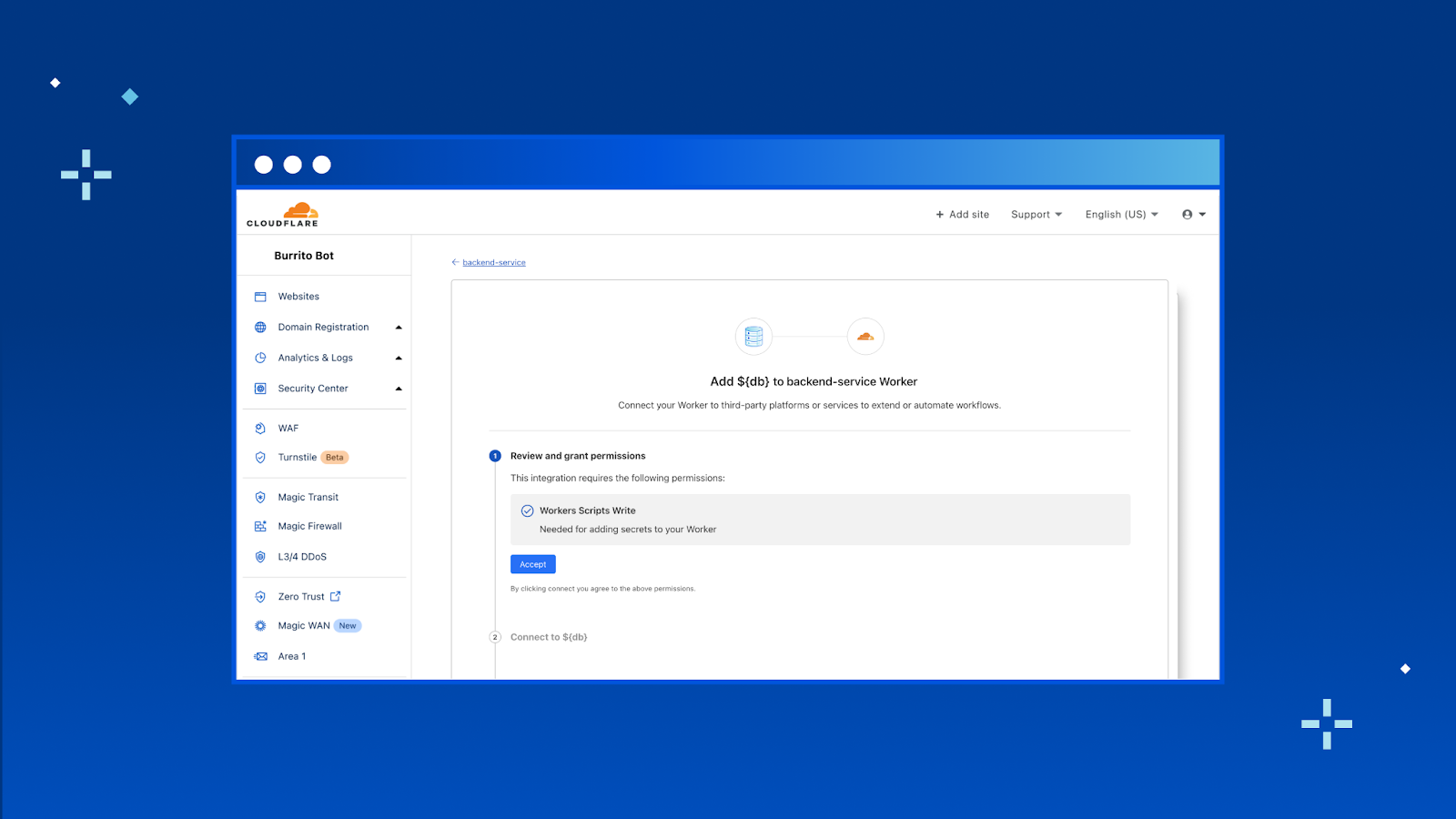
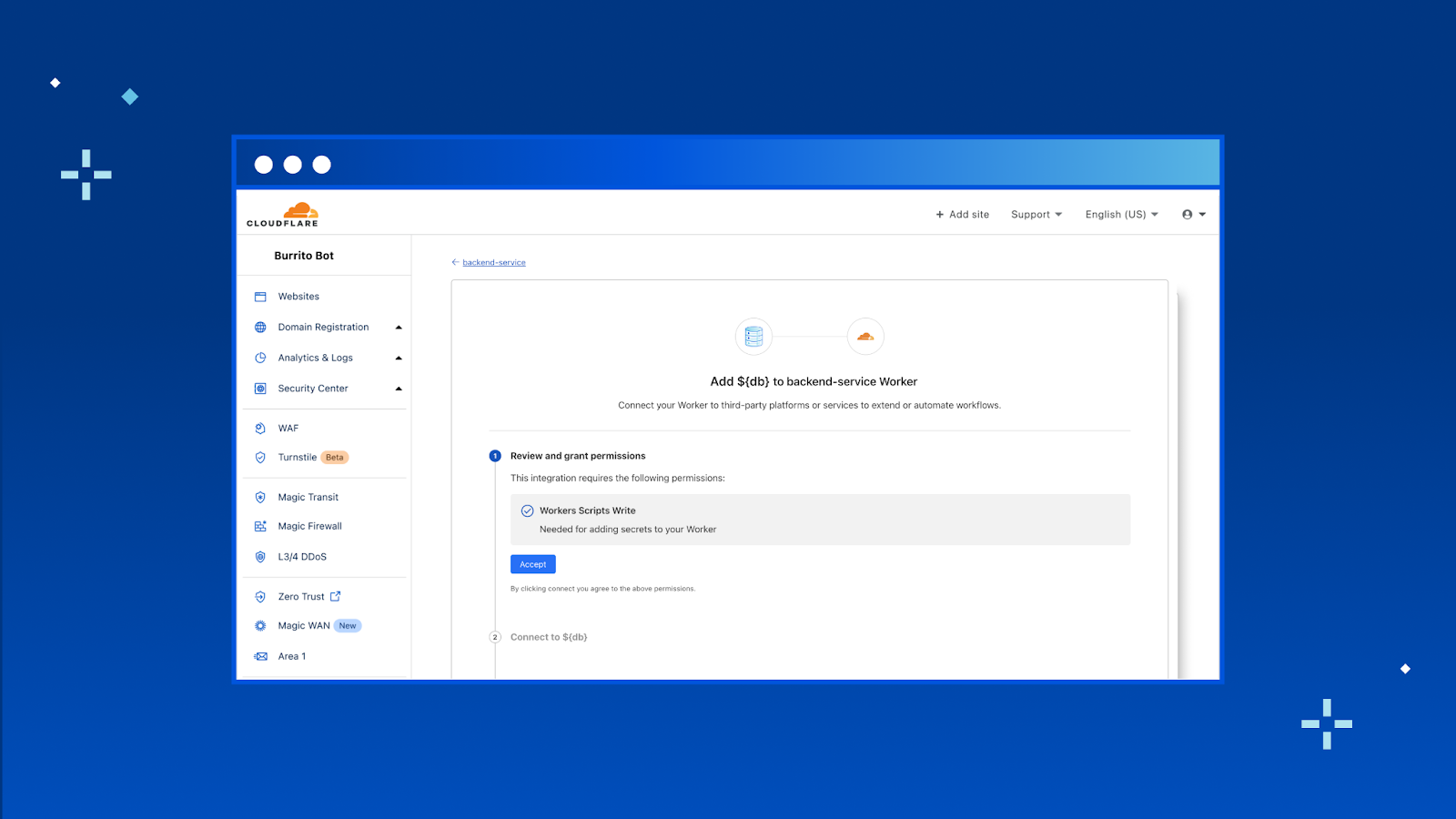
One of the best feelings as a developer is seeing your idea come to life. You want to move fast and Cloudflare’s developer platform gives you the tools to take your applications from 0 to 100 within minutes.
One thing that we’ve heard slows developers down is the question: “What databases can be used with Workers?”. Developers stumble when it comes to things like finding the databases that Workers can connect to, the right library or driver that's compatible with Workers and translating boilerplate examples to something that can run on our developer platform.
Today we’re announcing Database Integrations – making it seamless to connect to your database of choice on Workers. To start, we’ve added some of the most popular databases that support HTTP connections: Neon, PlanetScale and Supabase with more (like Prisma, Fauna, MongoDB Atlas) to come!
Focus more on code, less on config
Our serverless SQL database, D1, launched in open alpha last year, and we’re continuing to invest in making it production ready (stay tuned for an exciting update later this week!). We also recognize that there are plenty of flavours of databases, and we want developers to have the freedom to select what’s Continue reading
Goodbye, section 2.8 and hello to Cloudflare’s new terms of service


Earlier this year, we blogged about an incident where we mistakenly throttled a customer due to internal confusion about a potential violation of our Terms of Service. That incident highlighted a growing point of confusion for many of our customers. Put simply, our terms had not kept pace with the rapid innovation here at Cloudflare, especially with respect to our Developer Platform. We’re excited to announce new updates that will modernize our terms and cut down on customer confusion and frustration.
A bit of background on our legal terms of service
We want our terms to set clear expectations about what we’ll deliver and what customers can do with our services. But drafting terms is often an iterative process, and iteration over a decade can lead to bloat, complexity, and vestigial branches in need of pruning. Now, time to break out the shears.
Snip, snip
To really nip this in the bud, we started at the source–the content-based restriction housed in Section 2.8 of our Self-Serve Subscription Agreement:
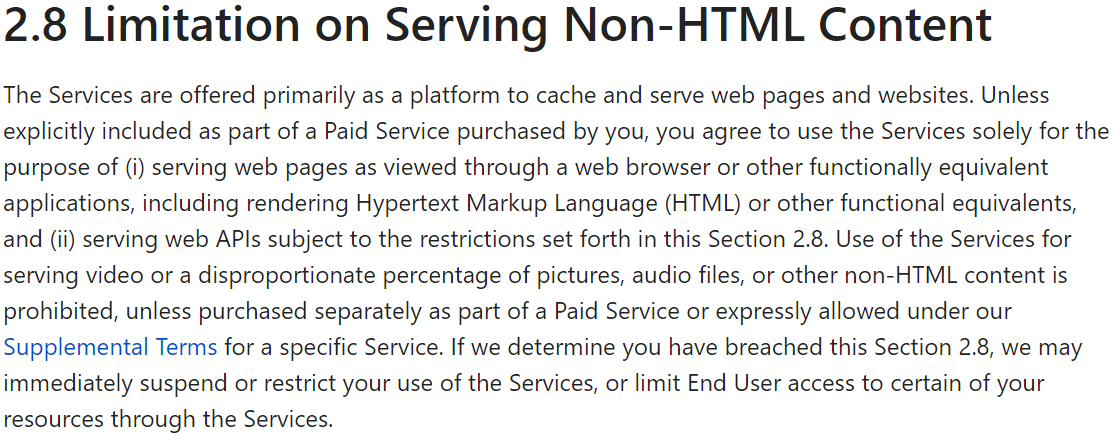
Cloudflare is much, much more than a CDN, but that wasn’t always the case. The CDN was one of our first services and originally designed to serve HTML content like webpages. Continue reading
Cloudflare R2 and MosaicML enable training LLMs on any compute, anywhere in the world, with zero switching costs


Building the large language models (LLMs) and diffusion models that power generative AI requires massive infrastructure. The most obvious component is compute – hundreds to thousands of GPUs – but an equally critical (and often overlooked) component is the data storage infrastructure. Training datasets can be terabytes to petabytes in size, and this data needs to be read in parallel by thousands of processes. In addition, model checkpoints need to be saved frequently throughout a training run, and for LLMs these checkpoints can each be hundreds of gigabytes!
To manage storage costs and scalability, many machine learning teams have been moving to object storage to host their datasets and checkpoints. Unfortunately, most object store providers use egress fees to “lock in” users to their platform. This makes it very difficult to leverage GPU capacity across multiple cloud providers, or take advantage of lower / dynamic pricing elsewhere, since the data and model checkpoints are too expensive to move. At a time when cloud GPUs are scarce, and new hardware options are entering the market, it’s more important than ever to stay flexible.
In addition to high egress fees, there is a technical barrier to object-store-centric machine learning training. Reading and Continue reading
Use Snowflake with R2 to extend your global data lake


R2 is the ideal object storage platform to build data lakes. It’s infinitely scalable, highly durable (eleven 9's of annual durability), and has no egress fees. Zero egress fees mean zero vendor lock-in. You are free to use the tools you want to get the maximum value from your data.
Today we’re excited to announce our partnership with Snowflake so that you can use Snowflake to query data stored in your R2 data lake and load data from R2 into Snowflake. Organizations use Snowflake's Data Cloud to unite siloed data, discover, and securely share data, and execute diverse analytic workloads across multiple clouds.
One challenge of loading data into Snowflake database tables and querying external data lakes is the cost of data transfer. If your data is coming from a different cloud or even different region within the same cloud, this typically means you are paying an additional tax for each byte going into Snowflake. Pairing R2 and Snowflake lets you focus on getting valuable insights from your data, without having to worry about egress fees piling up.
Getting started
Sign up for R2 and create an API token
If you haven’t already, you’ll need to sign up for R2 Continue reading
Announcing connect() — a new API for creating TCP sockets from Cloudflare Workers
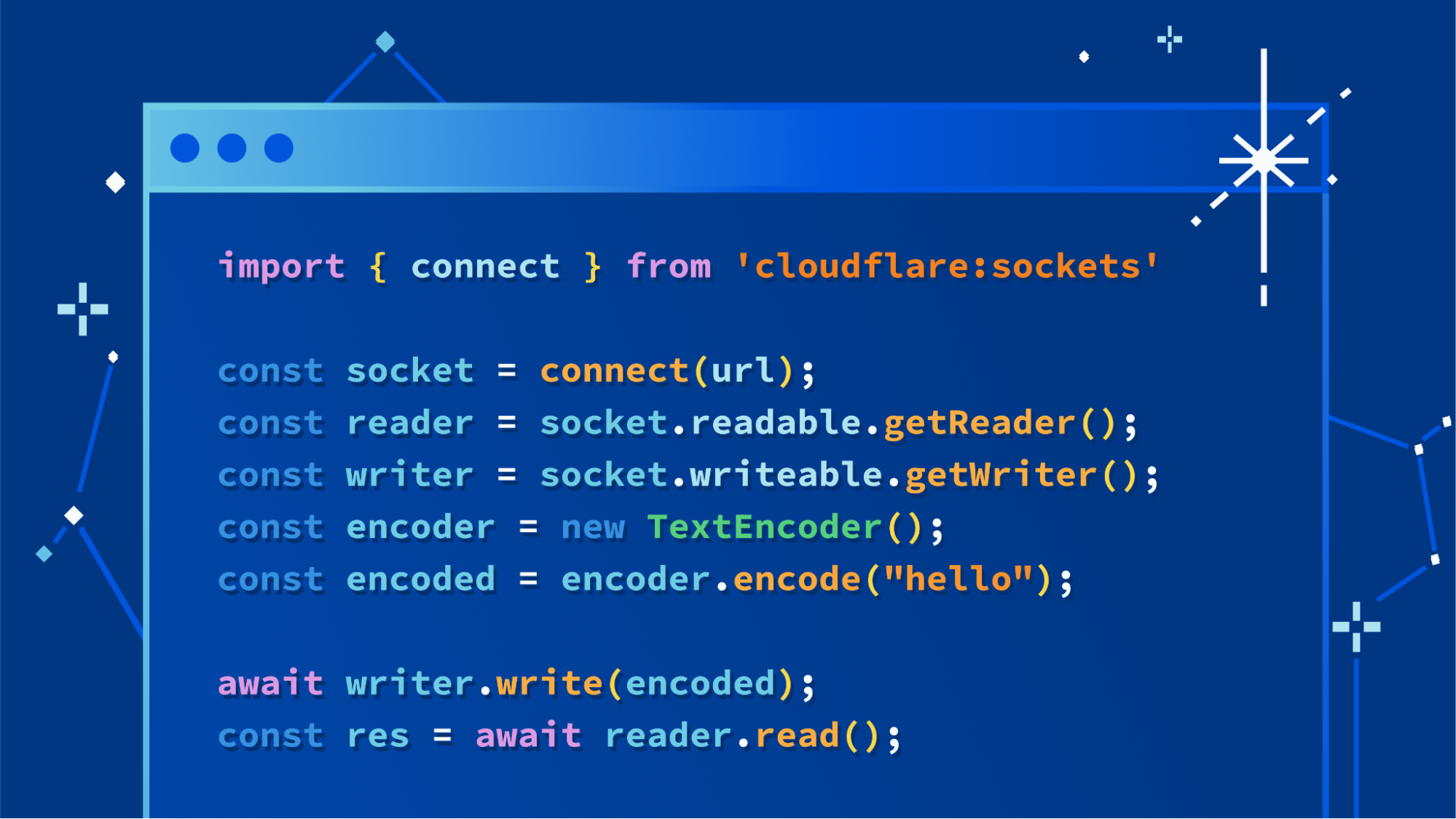

Today, we are excited to announce a new API in Cloudflare Workers for creating outbound TCP sockets, making it possible to connect directly to any TCP-based service from Workers.
Standard protocols including SSH, MQTT, SMTP, FTP, and IRC are all built on top of TCP. Most importantly, nearly all applications need to connect to databases, and most databases speak TCP. And while Cloudflare D1 works seamlessly on Workers, and some hosted database providers allow connections over HTTP or WebSockets, the vast majority of databases, both relational (SQL) and document-oriented (NoSQL), require clients to connect by opening a direct TCP “socket”, an ongoing two-way connection that is used to send queries and receive data. Now, Workers provides an API for this, the first of many steps to come in allowing you to use any database or infrastructure you choose when building full-stack applications on Workers.
Database drivers, the client code used to connect to databases and execute queries, are already using this new API. pg, the most widely used JavaScript database driver for PostgreSQL, works on Cloudflare Workers today, with more database drivers to come.
The TCP Socket API is available today to everyone. Get started by reading the TCP Continue reading
Zero Trust Security for AI

A collection of tools from Cloudflare One to help your teams use AI services safely

Cloudflare One gives teams of any size the ability to safely use the best tools on the Internet without management headaches or performance challenges. We’re excited to announce Cloudflare One for AI, a new collection of features that help your team build with the latest AI services while still maintaining a Zero Trust security posture.
Large Language Models, Larger Security Challenges
A Large Language Model (LLM), like OpenAI’s GPT or Google’s Bard, consists of a neural network trained against a set of data to predict and generate text based on a prompt. Users can ask questions, solicit feedback, and lean on the service to create output from poetry to Cloudflare Workers applications.
The tools also bear an uncanny resemblance to a real human. As in some real-life personal conversations, oversharing can become a serious problem with these AI services. This risk multiplies due to the types of use cases where LLM models thrive. These tools can help developers solve difficult coding challenges or information workers create succinct reports from a mess of notes. While helpful, every input fed into a prompt becomes a piece of Continue reading
A raft of free Cloudflare services for AI startups


Over the past couple of years, we have piloted a program for early stage startups with free access to a selection of developer products that are high leverage for them. Last year, we launched version 2 of the startup program, which dramatically expanded the basket of products included.
While upgrading startups to the startup plan, I often get inquiries from startups that are fully bootstrapped and not affiliated with any accelerator program. Many of them, especially AI startups, are very promising and would benefit highly from the startup plan.
Typically, they also apply for the Workers Launchpad program, for whom semi-finalists can get upgraded to the startup plan as a benefit. But many of those startups would benefit from getting upgraded right away rather than wait for the review process for each cohort.
Starting today, AI startups no longer need an accelerator affiliation or an employee referral in order to qualify for the Startup Program.
How to get on the startup plan as an AI startup
Here’s what I need you to do if you are a founder of a bootstrapped AI startup. Create a Cloudflare account if you don’t have one, add a domain, and update Continue reading
Introducing Cursor: the Cloudflare AI Assistant


Today we’re excited to be launching Cursor – our experimental AI assistant trained to answer questions about Cloudflare’s Developer Platform. This is just the first step in our journey to help developers build in the fastest way possible using AI, so we wanted to take the opportunity to share our vision for a generative developer experience.
Whenever a new, disruptive technology comes along, it’s not instantly clear what the native way to interact with that technology will be.
However, if you’ve played around with Large Language Models (LLMs) such as ChatGPT, it’s easy to get the feeling that this is something that’s going to change the way we work. The question is: how? While this technology already feels super powerful, today, we’re still in the relatively early days of it.
While Developer Week is all about meeting developers where they are, this is one of the things that’s going to change just that — where developers are, and how they build code. We’re already seeing the beginnings of how the way developers write code is changing, and adapting to them. We wanted to share with you how we’re thinking about it, what’s on the horizon, and some of the large Continue reading
Introducing Constellation, bringing AI to the Cloudflare stack

This post is also available in 简体中文, 日本語, Deutsch and Español.

The Cloudflare Workers' ecosystem now features products and features ranging from compute, hosting, storage, databases, streaming, networking, security, and much more. Over time, we've been trying to inspire others to switch from traditional software architectures, proving and documenting how it's possible to build complex applications that scale globally on top of our stack.
Today, we're excited to welcome Constellation to the Cloudflare stack, enabling developers to run pre-trained machine learning models and inference tasks on Cloudflare's network.
One more building block in our Supercloud
Machine learning and AI have been hot topics lately, but the reality is that we have been using these technologies in our daily lives for years now, even if we do not realize it. Our mobile phones, computers, cars, and home assistants, to name a few examples, all have AI. It's everywhere.
But it isn't a commodity to developers yet, though. They often need to understand the mathematics behind it, the software and tools are dispersed and complex, and the hardware or cloud services to run the frameworks and data are expensive.
Today we're introducing another feature to our stack, allowing everyone to Continue reading
Query Cloudflare Radar and our docs using ChatGPT plugins
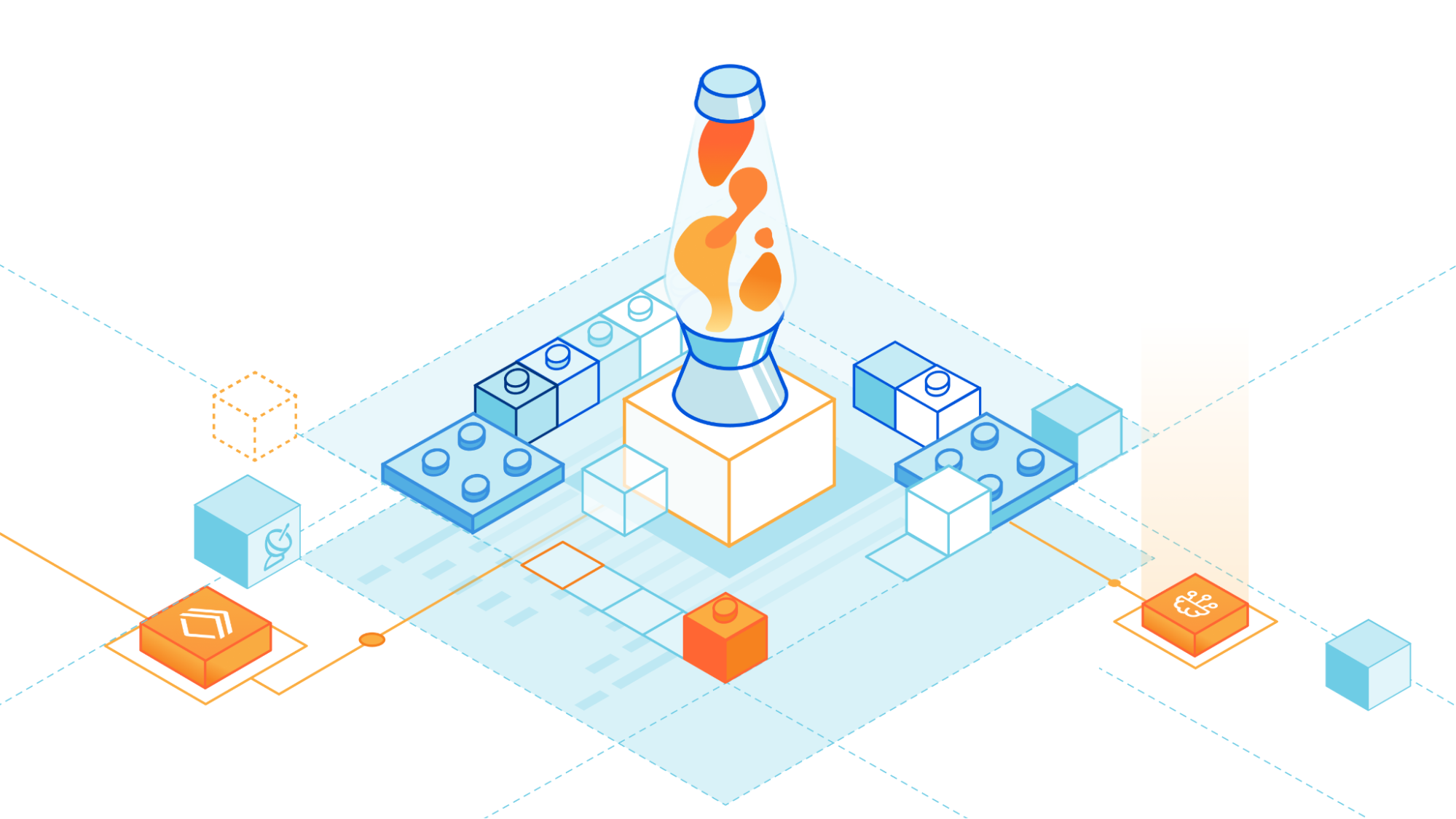

When OpenAI launched ChatGPT plugins in alpha we knew that it opened the door for new possibilities for both Cloudflare users and developers building on Cloudflare. After the launch, our team quickly went to work seeing what we could build, and today we’re very excited to share with you two new Cloudflare ChatGPT plugins – the Cloudflare Radar plugin and the Cloudflare Docs plugin.
The Cloudflare Radar plugin allows you to talk to ChatGPT about real-time Internet patterns powered by Cloudflare Radar.
The Cloudflare Docs plugin allows developers to use ChatGPT to help them write and build Cloudflare applications with the most up-to-date information from our documentation. It also serves as an open source example of how to build a ChatGPT plugin with Cloudflare Workers.
Let’s do a deeper dive into how each of these plugins work and how we built them.
Cloudflare Radar ChatGPT plugin
When ChatGPT introduced plugins, one of their use cases was retrieving real-time data from third-party applications and their APIs and letting users ask relevant questions using natural language.
Cloudflare Radar has lots of data about how people use the Internet, a well-documented public API, an OpenAPI specification, and it’s entirely built on Continue reading
Batteries included: how AI will transform the who and how of programming


The 1947 paper titled “Preparation of Problems for EDVAC-Type Machines” talks about the idea and usefulness of a “subroutine”. At the time there were only a tiny number of computers worldwide and subroutines were a novel idea, and it was clear that these subroutines were going to make programmers more productive: “Many operations which are thus excluded from the built-in set are still of sufficiently frequent occurrence to make undesirable the repetition of their coding in detail.”
Looking back it seems amazing that subroutines had to be invented, but at the time programmers wrote literally everything they needed to complete a task. That made programming slow, error-prone and restricted who could be a programmer to a relatively small group of people.
Luckily, things changed.
You can look at the history of computer programming as improvements in programmer productivity and widening the scope of who is a programmer. Think of syntax highlighting, high-level languages, IDEs, libraries and frameworks, APIs, Visual Basic, code completion, refactoring tools, spreadsheets, and so on.
And here we are with things changing again.
The new programmers
The recent arrival of LLMs capable of assisting programmers in writing, debugging and modifying code is yet Continue reading
Welcome to Developer Week 2023

This post is also available in French, Spanish, German, Japanese, Chinese.

It is an incredibly exciting time to be a developer.
The frameworks, libraries and developer tools we depend on keep leveling up in ways that allow us to build more efficiently. On top of that, we’re using AI-powered tools like ChatGPT and GitHub Copilot to ship code quicker than many of us ever could have imagined. This all means we’re spending less time on boilerplate code and setup, and more time writing the code that makes our applications unique.
It’s not only a time when we’re equipped with the tools to be successful in new ways, but we're also finding inspiration in what’s happening around us. It feels like every day there’s an advancement with AI that changes the boundaries of what we can build. Across meetups, conferences, chat rooms, and every other place we gather as developers, we’re pushing each other to expand our ideas of what is possible.
With so much excitement permeating through the global developer community, we couldn’t imagine a better time to be kicking off Developer Week here at Cloudflare.
A focus on developer experience
A big part of any Continue reading